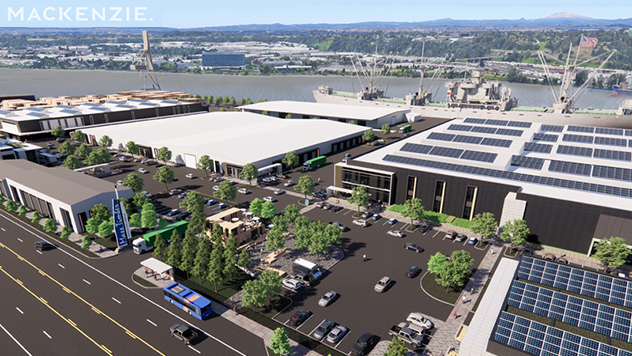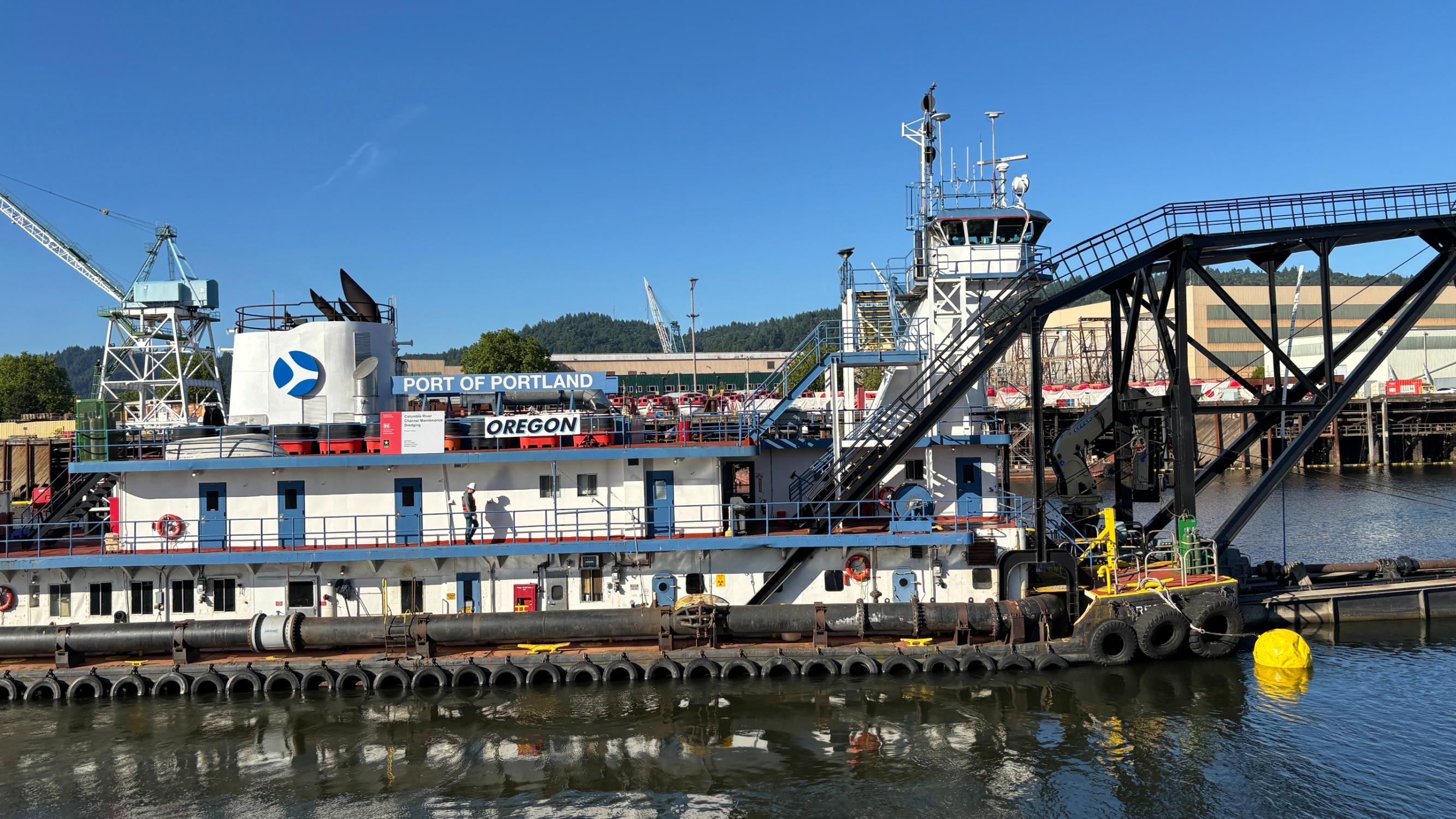Port announces partnership with ZTS on new mass timber factory, boosting jobs and modular housing construction for the region

The Port of Portland has approved a long-term ground lease with ZAUGG Timber Solutions (ZTS) to build and operate a new mass timber modular factory at the Port’s Mass Timber and Housing Innovation Campus at Terminal 2.
ZTS is a key anchor tenant at the campus, where the Port is transforming a former marine terminal in Portland’s Northwest industrial area into a manufacturing hub. The campus will support Oregon’s growing mass timber industry, create new jobs and small-business opportunities, and help address the region’s housing shortage.
“Our partnership with ZTS marks a major leap forward in developing the Mass Timber and Housing Innovation Campus at T2,” said Kimberly Branam, Port of Portland Chief Trade and Economic Development Officer. “Their new manufacturing facility will boost our region’s economy by promoting sustainable forestry practices, creating quality jobs, and increasing housing production.”
Compared to traditional construction, modular homes are built faster, can be manufactured year-round, and create less waste. Mass timber buildings – made of layered and bonded wood – use less energy and store more carbon than concrete or steel, and can be sustainably and cost-effectively sourced, supporting forest health and resiliency.
The new 100,000-square-foot manufacturing facility is expected to open in early 2028. ZTS will begin producing mass timber modular housing units, industrial and commercial buildings, and other prefabricated mass timber building components even sooner – as early as 2026 – in an interim manufacturing facility, located in a renovated warehouse at T2.
“Our investment plans are a recognition of the incredible work already done to build the mass timber economy of the Pacific Northwest. We hope we can be a small part of it by contributing our hard-won expertise around affordable modular and prefabricated mass timber elements,” said Stephan Zaugg, Chairman of the company.
ZTS is the North American affiliate of the ZAUGG group of companies, which have manufactured prefabricated buildings since 1936. The third-generation, family-owned Swiss company built the first modular multifamily mass timber prototype in the United States after establishing roots here in 2020.
The factory at T2 will be among the first of its kind in the United States to produce mass timber modular and prefabricated housing units and commercial buildings at such a large scale.
The facility will ramp up to 60 employees while supporting an estimated 135 total jobs throughout the region, including at mills and suppliers that hire additional staff to meet the new demand. ZTS is already recruiting and training some workers for new, high-tech manufacturing positions through its Advanced Mass Timber Training Program, offering paid apprenticeships in Switzerland and guaranteed jobs at the new factory.
ZTS is also working with Pacific Northwest tribes and local businesses. The company’s longstanding partnership with the Confederated Tribes and Bands of the Yakama Nation includes joint training, prototyping and manufacturing. ZTS will require multiple suppliers of cross-laminated timber (CLT) and glulam to complete its prefabricated structures and looks forward to cooperating with local manufacturers as their facilities come online.
When complete, the 39-acre campus at T2 will be a hub for manufacturers, research and development, and business incubators, with flexible industrial space and offices supporting housing innovation, mass timber, forestry, climate tech, and related industries. It will house the ZTS factory for building modular housing and other mass timber structures, a new University of Oregon lab for research and development of mass timber products for housing construction, workforce training programs, and space to help small businesses scale and new companies launch.
The Port is a member of the Oregon Mass Timber Coalition (OMTC), which in 2022 received a $41.4 million grant from the U.S. Economic Development Administration to develop a comprehensive strategy for expanding the use of mass timber in the housing market. The grant included $10 million for the Port toward campus infrastructure development, and $14.6 million toward UO’s acoustics research lab at T2, along with OMTC projects in other areas of the state.
Along with the OMTC grant, the Port received $4 million in federal Housing and Urban Development funding in 2024 and $5 million from the Oregon Legislature in 2023 toward campus development.
About the Mass Timber and Housing Innovation Campus at Terminal 2

With our three airports, three active marine terminals, and five business parks, the Port of Portland is an economic engine for transforming the region into a place where everyone is welcome, empowered, and connected to the opportunity to find a good job or grow their business.
The revitalization of Terminal 2 as an innovation campus is a way to bring the Port’s mission to life by creating powerful opportunities for working Oregonians and small-business owners, and revving Oregon’s economy – while also addressing the region’s housing shortage .
Soil stabilization and critical infrastructure improvements will take place over the next couple of years, with housing production expected to begin on-site as early as 2026, and with Phase 1 of campus development completed and fully operational in 2028. Phase 1 includes upriver soil stabilization, utility extensions, pavement improvements, campus-wide frontage improvements, and establishment of key anchor tenants like ZTS and the University of Oregon.
The Port continues seeking interested partners and leasing property to organizations in related industries as the site develops. For more information, visit portofportland.com/masstimber.





